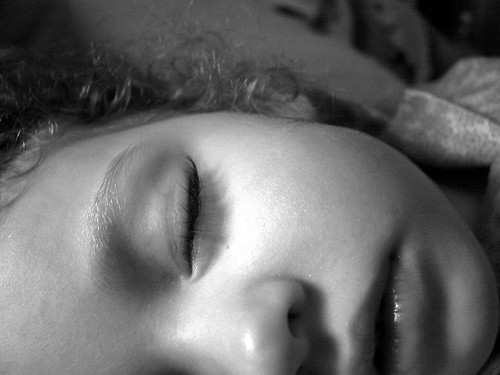The realm of mental health treatment has been witnessing a renaissance with the resurgence of interest in psychedelic-assisted therapy. This innovative approach, which integrates the use of substances like psilocybin with psychotherapy, has been gaining traction as a potential game-changer for treating psychological disorders such as depression, anxiety, and post-traumatic stress disorder (PTSD). The allure of psilocybin-assisted therapy lies in its reported ability to facilitate profound therapeutic breakthroughs, particularly in cases where conventional treatments have fallen short. But as with any frontier in medicine, it’s essential to navigate with both eyes open, recognizing not only the potential for healing but also the risks that may lurk beneath the surface.
Psilocybin and Its Use in Therapy
A recent study published in the Journal of Psychedelic Studies has cast a spotlight on the psychological risks associated with psilocybin-assisted therapy, drawing attention to the experiences of therapists who facilitate these treatments. The study’s findings underscore the complexity of psilocybin’s effects, which can vary dramatically from one individual to another, and are not universally beneficial. As we delve into the intricacies of this treatment, it’s crucial to understand what psilocybin is and how it’s used in therapy, as well as the short-term and long-term psychological risks that have been reported by therapists.
Psilocybin is a naturally occurring psychedelic compound found in over 200 species of mushrooms, colloquially known as ‘magic mushrooms.’ When ingested, psilocybin is converted into psilocin, which primarily affects the serotonin receptors in the brain. This leads to altered perceptions, emotions, and thoughts, often resulting in profound changes in consciousness described as spiritual or transcendental experiences.
In the context of therapy, psilocybin is administered in a controlled environment, accompanied by psychotherapy sessions. The typical protocol includes a preparatory session to establish rapport and set intentions, followed by one or more dosing sessions where clients consume psilocybin. Integration sessions then help clients make sense of their experiences, aiming to facilitate psychological healing and personal growth. Research has shown promising results, particularly in treating depression, anxiety, and PTSD, offering relief where traditional treatments have failed.
However, the psychological risks associated with psilocybin, which can profoundly alter perception and emotional states, are less understood. These substances increase suggestibility, emotional sensitivity, and can dramatically alter one’s perceptual framework, sometimes leading to persistent psychological disturbances. The new study aimed to explore the potential negative impacts of psilocybin, which have been less discussed in the wave of enthusiasm surrounding psychedelic-assisted therapy.

The Psychological Risks of Psilocybin-Assisted Therapy
Jón Ingi Hlynsson, a clinical graduate student at the University of Iceland and the study’s author, expressed his intrigue in mapping out psilocybin’s negative effects and identifying potential drawbacks of psychedelic-assisted therapy. The qualitative research design of the study involved semi-structured interviews with eight therapists who have facilitated psilocybin-assisted treatments. These therapists, based in Scandinavia, varied in their professional backgrounds and included psychologists, therapists, and even individuals without formal psychological training but with experience in psychedelic therapies.
The study identified three main themes of short-term negative effects. First, clients sometimes experienced direct negative reactions during the psilocybin dosing sessions, such as physical symptoms like nausea and headaches, cognitive disturbances like disorientation and paranoia, and emotional challenges characterized by fear and intense distress. These reactions can significantly impact the immediate therapeutic experience and require careful management.
The study reported undesirable processes in the therapeutic relationship. The altered state induced by psilocybin sometimes complicated interactions between therapists and clients, leading to communication barriers, misunderstandings, and a shift in power dynamics. These could lead to breaches in the therapeutic alliance, potentially diminishing the therapy’s effectiveness and affecting the client’s overall treatment experience.
Clients commonly encountered difficult self-experiences, where they faced painful and sometimes traumatic realizations about themselves. While these experiences could potentially lead to therapeutic breakthroughs, they were often overwhelming in the short term and could contribute to emotional distress during and immediately after the session.
Long-term effects outlined in the study included destabilization, with clients experiencing ongoing cognitive and emotional instability after the treatment sessions. Adaptation difficulties were also frequently observed, as clients struggled to integrate the insights gained during therapy into their lives. Complications in the treatment relationship emerged as a long-term issue, with emotional dependencies, continued attachments, and even romantic feelings towards the therapist complicating the conclusion of the therapeutic relationship. Lastly, several undesirable outcomes of treatment were highlighted, such as the emergence or worsening of psychological symptoms, difficulties with sleep, increased anxiety, and a persistent sense of disillusionment.
Hlynsson cautioned against unverified claims that psilocybin is a cure-all for psychological disorders, noting that the substance induces a potent altered state of mind and is not necessarily beneficial for everyone. The study suggests that the potential negative effects, especially for vulnerable individuals seeking psychotherapy, are not yet fully understood. While existing research presents promising findings, caution is advised before endorsing psilocybin as a viable treatment for mental disorders. The potential adverse effects of these treatments are still understudied.
The study provides important insights into the potential negative effects of psilocybin-assisted therapy but includes limitations, such as focusing on the treatment provider perspective without incorporating the treatment receiver’s perspective. Future research could include larger, more diverse populations and incorporate clients’ perspectives to provide a more balanced view of the risks associated with psychedelic-assisted therapy. Further studies could explore the mechanisms behind the negative effects observed and develop strategies to mitigate these risks.
Hlynsson hopes the study encourages researchers and clinicians to consider potential adverse effects more thoroughly before adopting this form of treatment, noting that the full impact is not yet clear. He concludes with a quote from Carl Jung: ‘Beware of unearned wisdom.’
Related posts:
Therapists report significant psychological risks in psilocybin-assisted treatments
Psilocybin therapy
Case analysis of long-term negative psychological responses to psychedelics






One thought on “Navigating the Psyche: Unveiling the Psychological Risks of Psilocybin-Assisted Therapy”
Comments are closed.